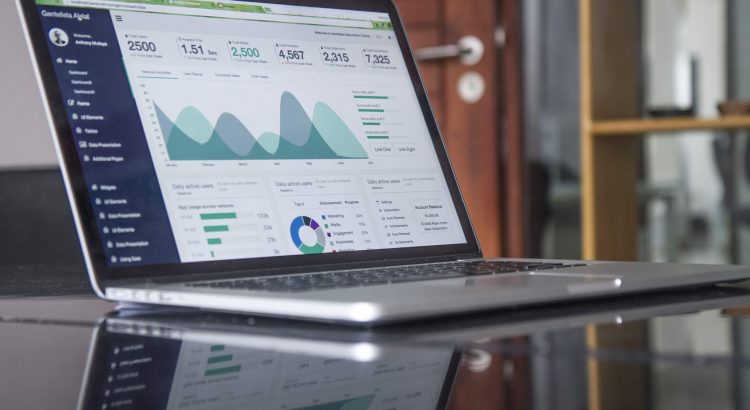Every year you will find something new in search engine optimization. New trends, practices, or techniques and we work towards implementing them in our digital marketing campaign. But the job is not done yet; you have to measure and analyze whatever you have implemented. If it’s successful well and good, otherwise, you have to work on those metrics and try improving them. In this post, we will learn about key SEO metrics that should be given more focus in 2018.
There are two major reasons that drive these constant variations.
The shifting algorithms and changing user-behaviors is the root cause of all the modifications. But you have no other option but to take the path that is specific to that particular phase.
I know you need no introduction that mobile users are increasing, right? The information available on a website is accessed in large numbers by these mobile users. Google making a note of this implemented mobile-first index, it is made one of the ranking signals. So, likewise, the metrics also change.
You cannot randomly pick SEO metrics or casually decide everything just looking at your keyword rankings, but have to go beyond that. Because there are a lot of important metrics that need to be measured and analyzed and it is quite necessary if you are to be the part of the dynamic market.
‘Industry experts like Neil, Moz, and Search Engine Land aim at encouraging people to focus more on concrete SEO results.’
Key SEO Metrics to Track in 2018
- Search Engine Ranking & Keyword Performance
- Search engine ranking is not the only criteria for success; also, there is no ‘secret sauce’ to rank in Google.
- The first step in SEO audit is to look into each keyword that is generating good page rank or let’s say contributing to the website rank. Identify the keywords, including the long-tailed keywords that people use more to search the results. Once you learn about the long-tailed keywords it’ll be easier interpret the location, demographics, and other useful information and thus create relevant search results.
- While picking up the keywords, you should look for one that brings more traffic to the one with huge competitiveness. Because it’s a common misconception people have about choosing a keyword. They think a high-value keyword brings them traffic, but it’s completely false.
- Instead, they will find it more difficult to rank for that keyword as everyone would have been using the same in their SEO campaign.
- You have a lot of good options for tracking keywords, Raven SEO, SEO Profiler, Wordstream, and etc. Each time you use a set of keywords, see that your website traffic is improving over time.
- Organic Clicks, Traffic Volume
- The main purpose of SEO campaign is gaining organic traffic, but are you getting that?
- Under PPC ad campaign, you buy traffic, the term organic doesn’t come anywhere near. But if you are running an SEO campaign, then the success is defined by the volume of traffic you receive organically from the search engine result page.
- As reported in imFORZA, 70-80% of users prefer organic results over the paid ads. As a digital marketer it’s also a smart choice if you avoid paid campaigns, because they give you results only till you pay. SEO campaigns, even though they take time, promise long-term benefits for your business at no cost.
- Now going back, the source for organic traffic is the keywords that you use. Unless you are not a search marketer you would not know that there are two forms of keywords – branded and non-branded.
- Branded keywords focus right on your business and brand. Your brand name will be a part of that keyword.
- Non-branded keywords are those people search for without knowing your brand. From SEO perspective it would be better if you focus more on non-branded keywords. Because unless your brand is popular, people will not search your products and services adding your brand name, so there is no question of organic traffic.
- Page Speed
- It has been an important metric of all time.
- Google recently announced Page Speed as the ranking factor for the mobile-first index. Now you have a huge reason to track and analyze this metric.
- Don’t get confused Page Speed with Site Speed. The Page Speed is described either in ‘page load time’ or ‘first-time byte’, which is the time taken by the browser to completely display the content of specific web page or the time taken by the browser to receive the first byte of information from the web server, respectively.
- It’s necessary you give a greater importance to this metric, not because it is a ranking signal, but if the page speed is slow, you will experience slower crawl rate and this will impact your Google search ranking.
- You can use Google’s PageSpeed Insights and evaluate the page speed. The score is included from Chrome User Experience Report, abbreviated as CrUX and you will be offered reports on two crucial speed metrics – First Contentful Paint (FCP) and DOMContentLoaded (DCL).
- An overall speed score will be provided based on each of these metrics. Based on the web page performance, you will be even provided optimization suggestions that you can implement and improve page speed.
- Bounce Rate
- It’s obvious if you are having good traffic but zero conversions, you have to analyze the website bounce rate.
- It’s also referred as single-page visits. A visitor landed on your web page but could not find what he wanted so he left without any further interaction. Bounce rate is the most important metric but at the same time the most under-valued.
- You will get a clear-cut idea about the web page you have to optimize or to what to work on with.
- Let me be a little clearer on this. One of the web pages has its title reading ‘web development service’, and instead of developing content around that subject, you have started a new explanation on search engine optimization. When a user lands to learn about your web development service, he’ll not find anything useful and will leave.
- It’s just a small example, on how you can improve your website and the conversion rate.
- Domain Authority
- One of the key SEO metrics developed by Moz, domain authority (DA) defines the authority of a website to rank in the search engine result page (SERP). Also explained as a measure of the power of the domain name, it basically revolves around three important factors – Age, popularity, and size.
- A score scale from 1-100 has been developed, higher the score your website gain; better will be the chance for that website to rank better. Open Site Explorer, MozBar, and Keyword Explorer are some of the tools that you can use and measure your domain authority.
- I think you still didn’t find any reason to measure this metric, right?
- DA defines your credibility to rank in Google search engine.
- How you rank is influenced by this metric.
- If you have a good number of authority links from high-authority websites, you will be more relevant to search engines.
- If you have bad domain authority, you can work towards building more quality links to your website and gain better search rankings.
Call Adroitte
Contact us to discuss your SEO related requirement. Call us today on +91 7760487777 or 08041127377 or message us on our contact form and we will reply back ASAP. We can discuss how we can strategically implement SEO successfully for your organization.




